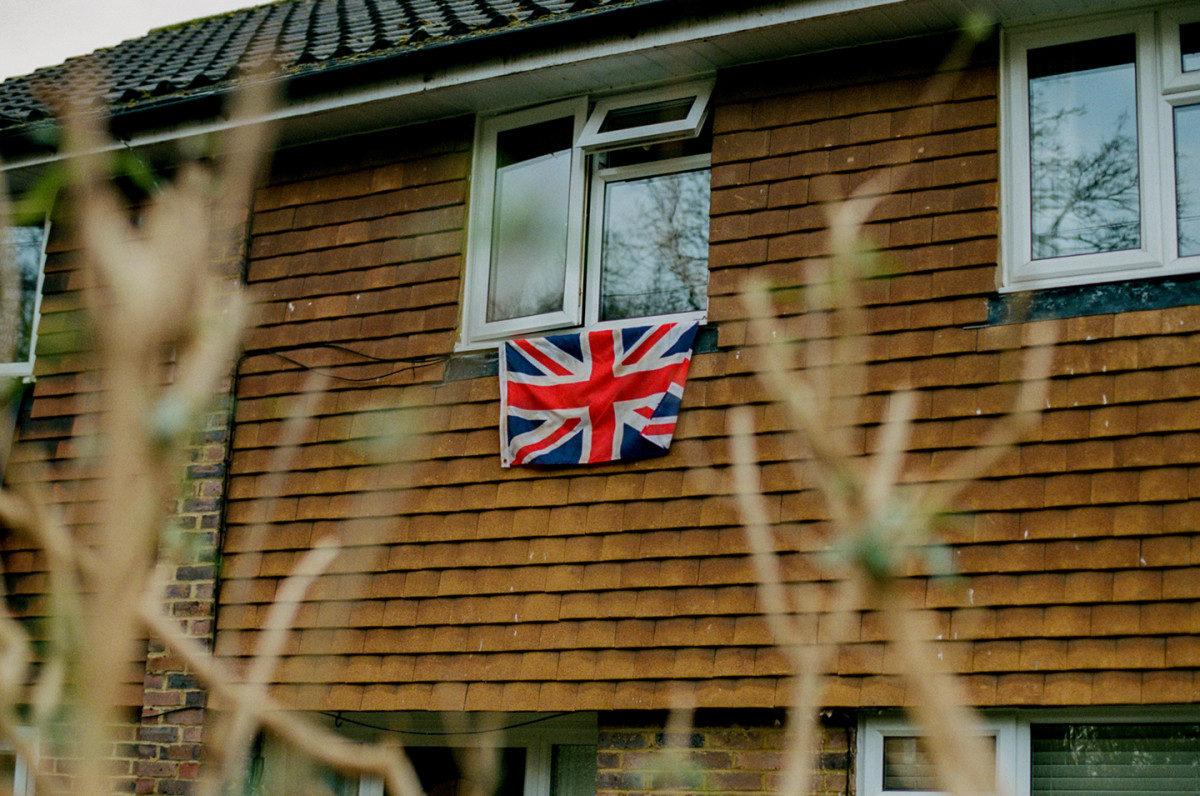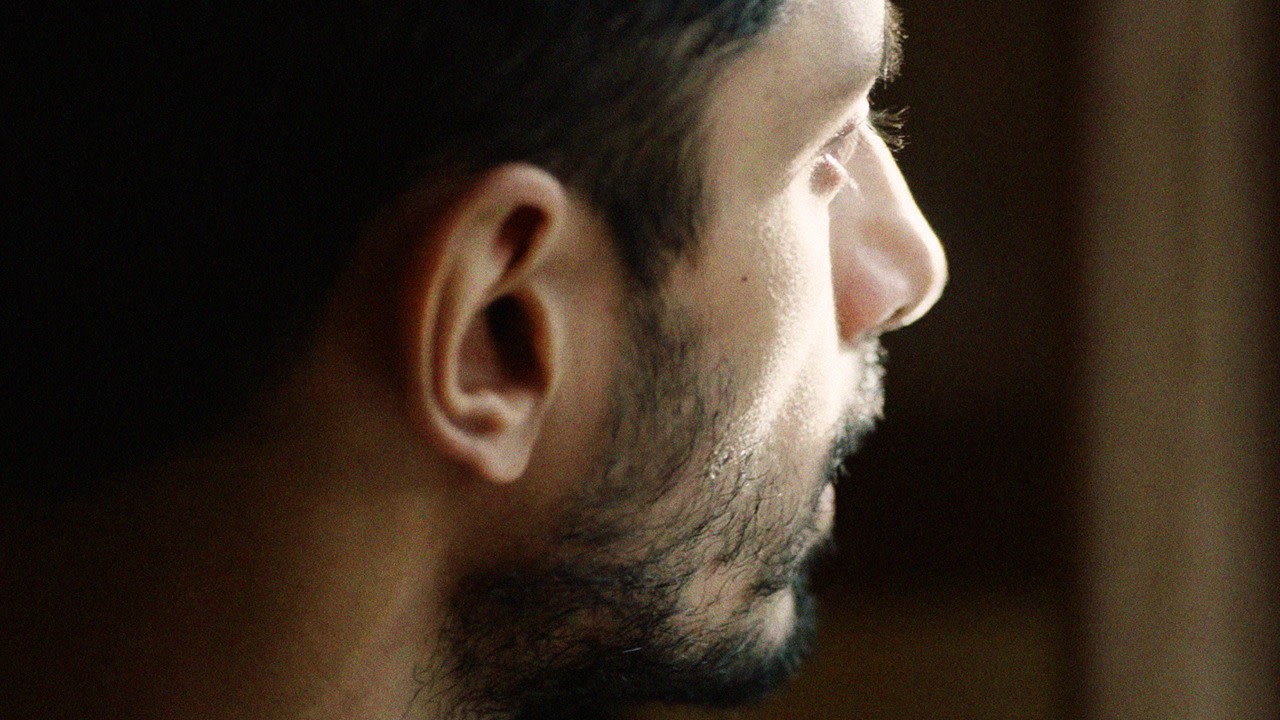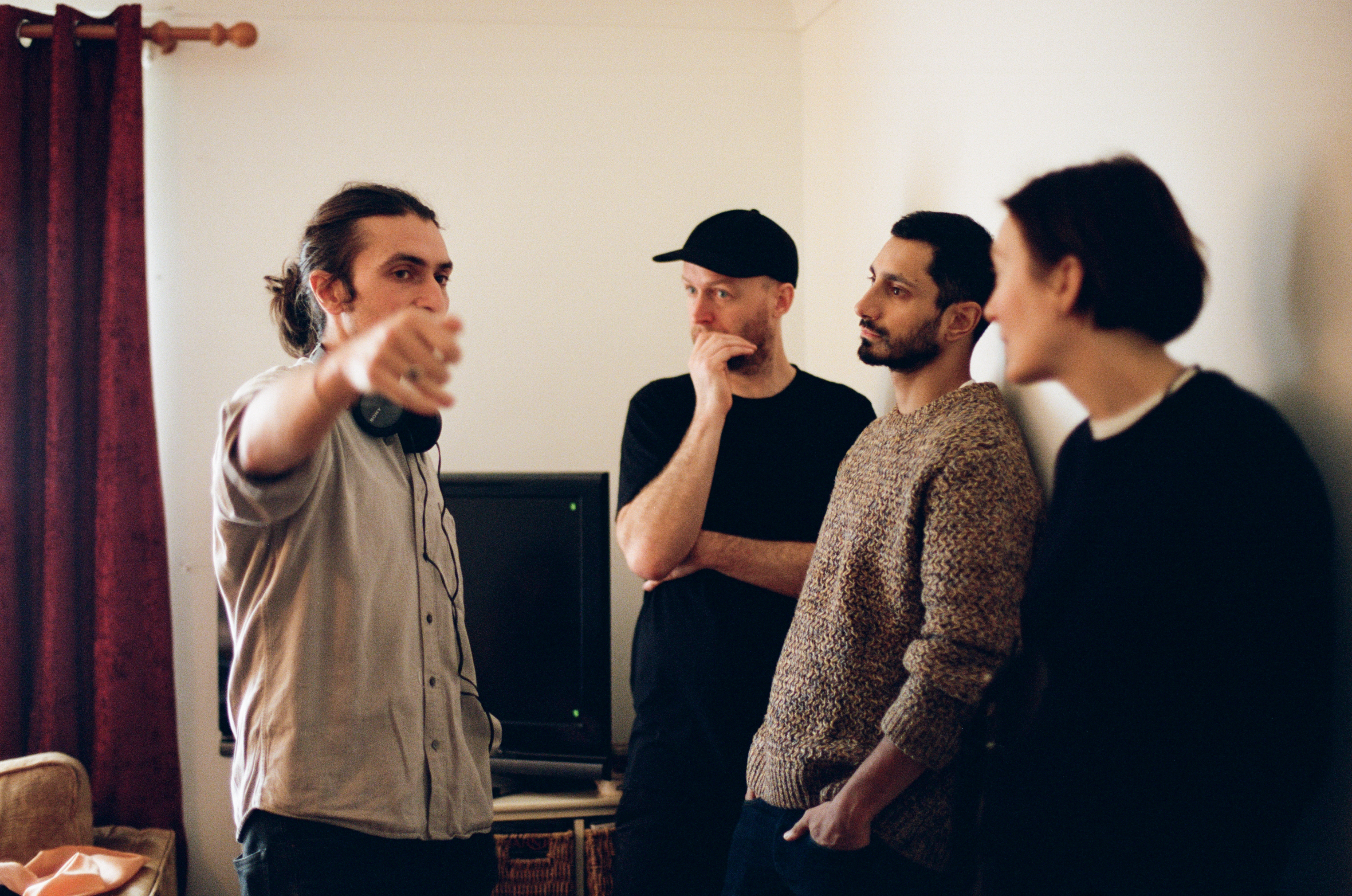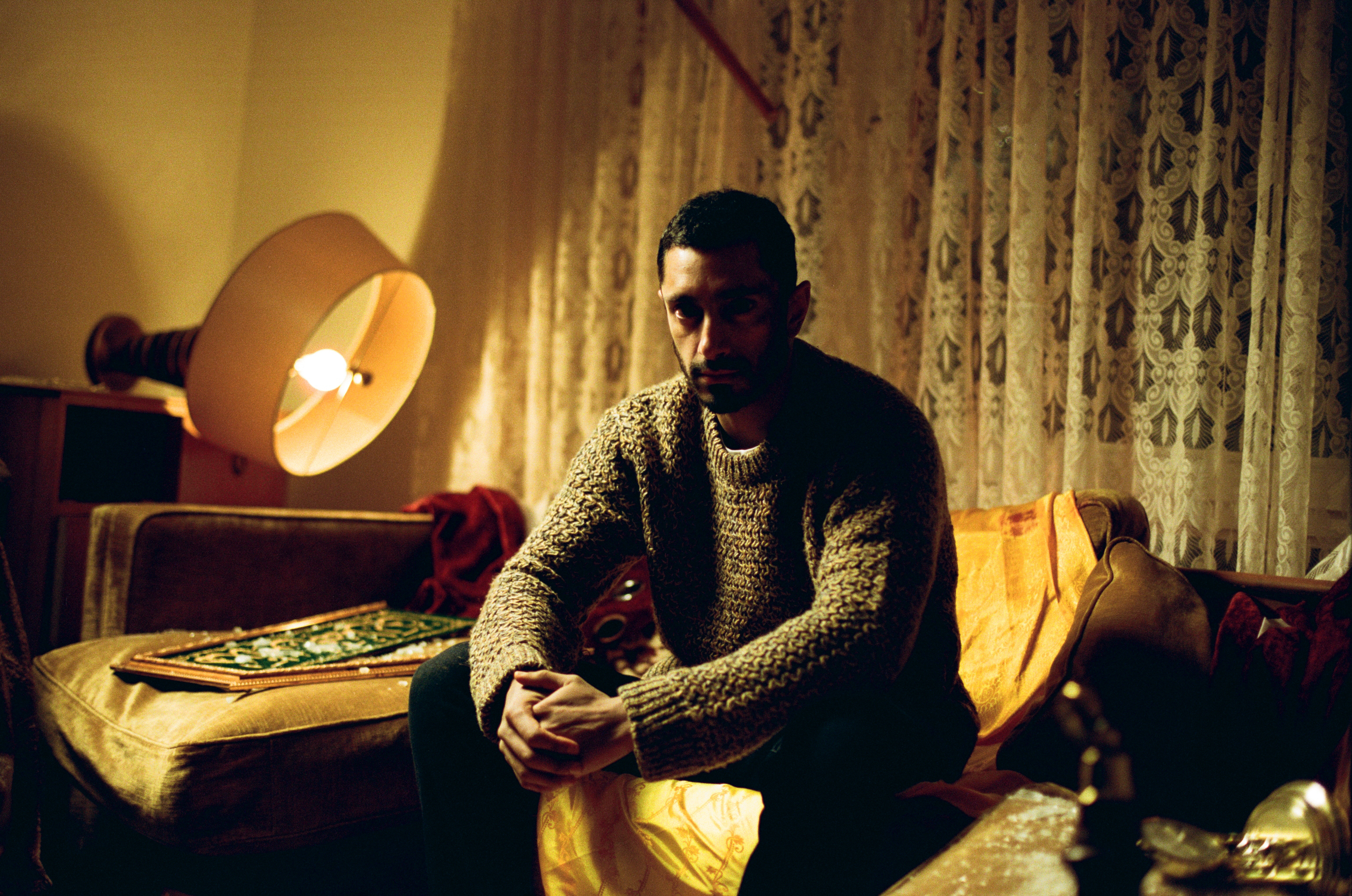

That twist that Ahmed mentions is liable to give you whiplash with organized disorder crashing onto the street and violent unrelenting imagery filling the screen as Ahmed’s song “Fast Lava” (from his identically titled The Long Goodbye album) blasts. He calls it operatic and a musical horror. Karia describes it as being composed from a mix of different stimuli (from the news and footage of far-right marches to “heightened references” to other films): “All our minds are sponges,” he says, making it clear how one can easily conjure the image of what the all-hope-lost erosion of civil liberties might look like in the UK and elsewhere.
That “second act” is certainly jarring for the actions of these soldiers against this family, but one of the more striking moments may come from inaction, seen when a man, ensnared by the round-up looks to his neighbors for help. It’s a chilling prompt to ask yourself what would you would do: Turn away? Look on? Or get involved while a gut-toting force in vans lines up your neighbors in the street?
“We tried to get this emotion which was just a real messy cocktail of things going on there,” Karia says. “They're not taking pleasure from it. They're not to blame for it. Are they complicit in it? Not technically. But are we all complicit in it? Yeah, I think it's a complex one, philosophically, and it certainly wasn't meant to be clean cut.”
The transition from the frenzy of the raid to a blistering spoken word performance by Ahmed that Karia describes as “heightened and poetic” and a contrast from the naturalism of everything else isn’t something that can be fully described without giving away a major plot point. But the intent of that transition is key and something Karia and Ahmed wanted to unlock for people after presenting such a powerful story.
“What we didn't want is for it to be this pointlessly-bleak experience, says Karia, adding that “it felt really, really important for the film to end on this defying note where it feels like Riz and, by proxy, victims of this racism can't be beaten.”
The notion of hope amidst the ceaseless battle against racism and violence may be difficult to grasp, especially at a time when politicians and so-called leaders minimize concerns while often turning a blind eye, stoking xenophobia, or embracing extremism. But that hope might be the point of the whole thing.
“Creating this kind of work is in itself a hopeful act. I mean, when you turn anything into a story it's a hopeful act because what you're doing is you're transmitting that feeling to other people. You are uniting people in a feeling, in an emotion, in a point of view," says Ahmed, who feels strongly that story can be, what he calls, "the antidote" to division. "Stories place us in each other's perspective, they bring us together, and they allow us to share feelings.”
In a time when simply "starting a conversation" may not be enough to avoid getting drowned out by the noise and quickly falling off the political discourse radar, being able to reach people in that way -- through the portal of empathy and emotion even if those emotions are fear and anger -- may also be the antidote to the apathy that can sometimes cause portraits like this to fall on deaf ears.
“It’s kind of groundbreaking in itself seeing a brown, Muslim, Asian family at home in that way,”
“It’s kind of groundbreaking in itself seeing a brown, Muslim, Asian family at home in that way,” says Ahmed. “We don't get to see that. We don't get to see the social realism with those characters. [...] I know someone who told me, ‘Listen, this film brought me to tears.’ And I said, ‘Why, because of the twist?" And they said, ‘No, because I've never seen brown characters just chilling at home like that.’”

Conversations have ignited revolutions, but they’ve more frequently been known to sputter or spin in a circle. And so, while “starting a conversation” or being “thought-provoking” can be a worthy goal, being heard, deeply felt, and understood is the real prize and a harder needle to thread. Especially when you’re trying to deliver a hard truth that people might reflexively turn away from. Such is the ambition and challenge of The Long Goodbye, a short film from director/writer Aneil Karia (Surge) starring Emmy winning and Oscar-nominated actor Riz Ahmed (who also co-wrote the film) that moves from slice of life to utter horror story. This before closing with defiance and poetry in response to the kind of hate-motivated violence that feels inevitable based on the state of things.
In addition to festival appearances (Cannes 2021) and prizes (London Critics Circle), the film (which is in conversation to be short-listed for an Academy Award) has sparked positive mention in the House of British Parliament. But that was never the goal. Instead, call it a happy side effect.
“We’re not trying to make a public service announcement. What we’re trying to do is just express ourselves. Express ourselves truthfully,” said Ahmed when we spoke last week, adding that he and Karia didn’t set out to be “activists, or campaigners” with The Long Goodbye, but that, “when you speak from the truth, you speak from your heart, you speak from a personal place it does resonate.”
Karia seconds the notion that there was no agenda at the start of a project that came together quickly, shooting for 2 days in December of 2019 about 3-4 weeks after breaking the story.
“The first time we sat down in a cafe or something, [we] just drank tea, and talked about the world, and our lives, and our sense of identity or non-identity as it was,” he said.
While Ahmed uses the words “raw” and “personal” when discussing the initial goals for the project, he’s also clear about the influence of current events on this story, specifically the rise of xenophobia in the UK and around the world.
“As people of color in Britain, born and raised and yet sometimes made to feel like our place there is conditional or not secure… I think we just kind of followed that line of thought in that [initial] conversation and kind of decided to make something that was taken both from reality, but also from our nightmares, and really just, unapologetically and without any filter, share that," he said.
The result of that effort is as ambitious as it is powerful, breaking the fourth wall and blending genres (drama, action, musical) across the short space of a little less than 12 minutes. But it’s the authentic look in at Ahmed and his on-screen family (a well-cast collection of actors, including Sudha Bhuchar, who plays Ahmed’s mother here and in his recent feature, Mogul Mowgli) hurriedly trying to get ready for a wedding that grounds everything. Scenes that, according to Karia, spark from nostalgia and his and Ahmed’s family lives growing up.
"Lorem ipsum dolor sit amet, consectetur adipiscing elit, sed do eiusmod tempor incididunt ut labore et dolore magna aliqua. Ut enim ad minim veniam, quis nostrud exercitation ullamcooident, sunt in culpa qui officia deser."
Riz Ahmed And Aneil Karia On The "Hopeful Act" Of Storytelling And The Artistry Of 'The Long Goodbye'

Riz Ahmed
and
Aneil Karia
On The Power And Artistry Of
'The Long Goodbye'


"when you turn anything to a story it's a hopeful act because what you're
doing is you're transmitting that feeling to other people."
BY: JASON TABRYS
WRITER/EDITOR